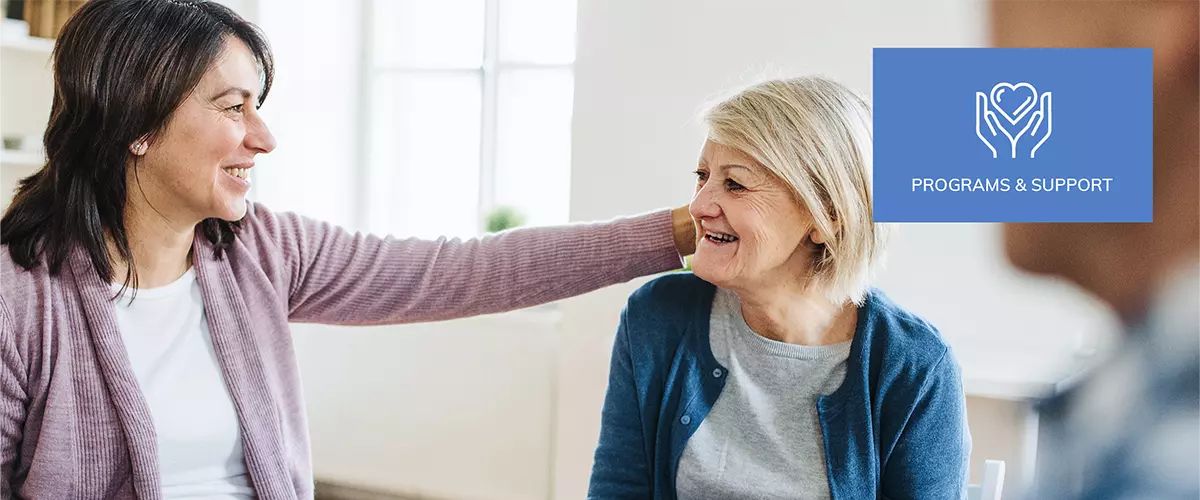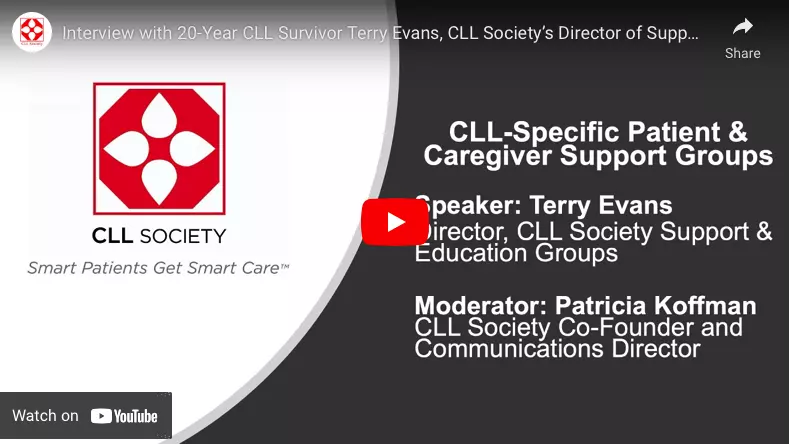
CLL-Specific Patient Support Groups
CLL-Specific Patient Support Groups
Over 4,000 CLL patients and care partners are currently registered to meet monthly in our approximately 40 CLL-specific support groups across the United States and Canada under the care and guidance of CLL Society-trained facilitators who uphold standards of inclusiveness and privacy. Each group covers a larger geographic area than the city or state they are associated with.
CLL Society’s CLL-specific support groups are a place of camaraderie and strategy sharing among CLL patients and caregivers as well as a hub of learning and swift conduits for CLL breaking news and cutting-edge research-supported treatment information. Sign up today!
Don't spend another month alone!
CLL Society’s support groups meet virtually once a month. Watch the video below where Patty Koffman chats with 20-year CLL survivor and director of CLL Society’s support groups, Terry Evans, who warmly invites you to sign on virtually and make new friends.
Action Items for CLL Support Groups
When building your care team, make joining a support group a priority.
There are continual changes, updates, and information that can dramatically affect your health, treatment, and finances.
We provide 3 ways to join.
Below, you’ll find 3 ways you can locate, register, and attend a CLL patient support group near you.
Locations Where Groups May Be Forming
When interest is expressed, we create a survey to gather contact information and preferences regarding days/times/frequency of meetings. Read more.
Below, you’ll find 3 ways you can locate, register, and attend a CLL patient support group close to you.
ADDITIONAL READING
Thank you to our sponsors for helping us provide the most updated CLL information.





